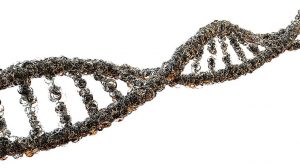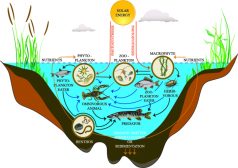Definition
noun, plural: chyles
A body fluid in the small intestine, containing mainly of emulsified fats and aids in the digestion
Supplement
The chyle is a body fluid in the small intestine. It is turbid and milky due to the presence of emulsified fats. The chyle is formed from the chyme during the digestion of fatty foods.
During the digestion of dietary fat, bile is discharged from the gallbladder into the duodenum to emulsify the lipids. The bile salts, in particular, aggregate around the droplets of lipids and form micelles. This prevents fat droplets from aggregating into larger fat particles. The fat particles are then hydrolyzed by lipases, resulting in a mixture of fatty acids (e.g. monoglycerides). These fatty acids are re-esterified inside the enterocytes (i.e. absorptive cells in the small intestine) to become triglycerides. Triglycerides bound to phospholipids, chlosterol ester, and apolipoprotein B48 form chylomicrons. Chylomicrons, in turn, are taken up by the lacteals to form chyle. The chyle is then transported into the lymphatic system, and finally into the venous circulation at the thoracic duct in the neck.
Word origin: Gk, chylos, juice
Synonym(s):
- chylus
See also:
Related term(s):
- Chyle cistern
- Chyle corpuscle
- Chyle cyst
- Chyle peritonitis
Related form(s):







